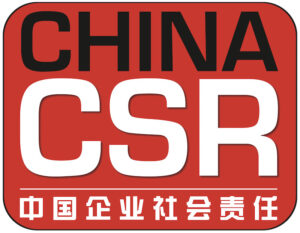During the United Nations General Assembly in September, the Intergovernmental Panel on Climate Change once again warned that global emissions are on track to surpass the 1.5 degrees Celsius warming limit and reach 3.2 degrees Celsius by the end of the century.
Cathay Financial Holdings (Cathay FHC), one of the leading financial institutions in Asia, has continued taking even more aggressive actions to ensure that its net-zero commitment carries on, even during the past two and a half years of the COVID-19 pandemic. At Climate Week NYC this September, Cathay FHC was pleased to announce that its sustainable targets have been approved by the Science Based Targets initiative (SBTi), a coalition comprised of the Carbon Disclosure Project (CDP), the United Nations Global Compact, World Resources Institute, and the World Wide Fund (WWF) for Nature.
Today, more and more top global companies have committed to setting emissions-reduction targets through the SBTi. The SBTi is leading the business-based effort for the 1.5 degree Celsius campaign, which calls for companies to set net zero science-based targets in line with a 1.5 degree Celsius future. The goal is to reduce global-greenhouse-gas (GHG) emissions by 50 percent by 2030 and to reach net-zero emissions no later than 2050. Businesses that commit to this effort have two years to develop science-based targets, which are then closely reviewed by the initiative's team of experts. Only targets that meet its strict criteria are approved.
For years, Cathay FHC has been encouraging climate-change awareness throughout its entire operation. In addition to Cathay FHC's headquarters and various flagship office complexes, major subsidiaries are using and/or gradually transitioning towards renewable energy sources in their buildings. As the first Taiwanese financial institution to establish the Responsible Investment Working Group, Cathay FHC has also been investing in renewable energy, developing green insurance, and issuing green bonds since 2014.
Cathay United Bank, one of Cathay FHC's subsidiaries, for example, has set targets for renewable-energy loans and coal-fired electricity-generation financing, including a target for renewable-energy loans: namely, to increase the proportion of the credit business associated with loans for renewable energy in the power-generation industry to 85 percent by 2025; and a target for loans to high carbon-emission industries: specifically, to cease coal financing by the first quarter of 2027.
Cathay FHC, globally committed to 100 percent renewable energy by 2050, is also the first Taiwanese financial institution to join the RE100 initiative.
In addition to utilizing science in setting long-term absolute GHG targets to cover its entire value chain, Cathay FHC is also looking forward to others joining this effort. In recent years, through the aggressive engagement of stakeholders, major carbon emitters in Taiwan, including Formosa Plastics, China Steel, Foxconn, and Taiwan Cement, have all committed to net zero and/or carbon neutral goals.
Cathay FHC has also been analyzing the opportunities and challenges facing natural capital investments and how mobilizing finance for nature can help achieve the goals of both the Paris Agreement and the Post-2020 Global Biodiversity Framework. Chief Investment Officer Sophia Cheng was recently invited to speak at the World Biodiversity Summit and Third AOS Climate and ESG Asset Owner Summit during UNGA 77 and Climate Week NYC. She shared Cathay FHC's net-zero roadmap, including real-world examples, and urged financial institutions to influence their stakeholders in halting and even reversing this loss of biodiversity. Cheng also called for a realignment to a pro-nature economy that can drive new business opportunities.
Cathay FHC understands that "speed and scope" are important in a unified effort to fight climate change. Through youth forums, workshops, roundtables, and more, Cathay FHC continues to work with and encourage young people in caring about, taking the initiative in, and becoming valuable contributors to the climate-action movement.
Clearly, solving climate change requires a global effort. The annual Cathay Sustainable Finance and Climate Change Summit aims to guide Taiwanese companies in identifying paths to corporate sustainability, enabling them to take a clear and aggressive path of action on climate change. This year during the upcoming COP27 in November, Cathay FHC has taken the initiative by working with the World Climate Foundation to feature live-streaming of the World Climate Summit at the event.

